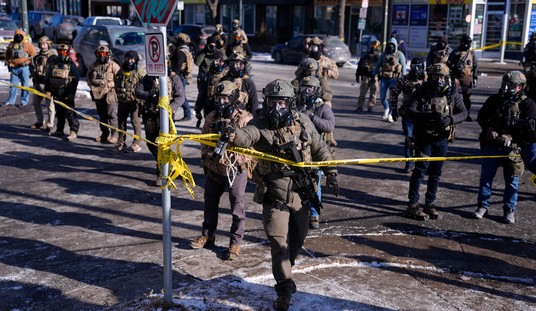A professor of political science, Michael Filozof, maintains he was sacked in 2004 from Monroe Community College (MCC), a publicly funded campus in Rochester, New York, for expressing his personal political opinions outside the classroom, reports News 10NBC. The fact that he had been rated “an exceedingly gifted teacher” apparently counted for naught in his firing.
And what were Filozof’s political speech “crimes”? “I voiced support for the War in Iraq and for President Bush at the time,” he states, adding that he “found that MCC was an extraordinary partisan and intolerant environment” and that “the taxpayers would be shocked to know how intolerant and bigoted many of the faculty members there are.”
But these persecutors greatly underestimated the fortitude of Filozof, who did not take his dismissal supinely but sued MCC, its board of trustees, and several of its officers for violations of the First Amendment, asking for back pay and to be reinstated in his job.
Filozof fought long and hard in face of evasive tactics on the part of MCC, which responded by asking the court to dismiss the case, and despite ostracism elsewhere in academe. “MCC has certainly stone-walled this case from the start,” notes Filozof’s attorney, Nelson Thomas of Dolin, Thomas and Solomon. Filozof also “has faced blacklisting in the academic community,” Thomas says (as cited by Christine Caulfield at Competition Law360), “despite his excellent abilities as a professor.”
Filozof claims MCC infringed his First Amendment rights. More exactly, asserts Thomas, “he was terminated for his political beliefs. This was absolutely political discrimination. It was political correctness run amuck.”
Notably, his suit cites MCC internal documents that linked Filozof’s termination in part to his “opinions [which] were conservative (politically).” Moreover, he even provided a statement by the MCC liberal arts dean that it seemed like the chair of his department was “out to get” him (Filozof).
This case could be of national import. Legions of other professors have lacked the means and/or perseverance to fully prosecute their complaints. Filozof, however, succeeded in convincing a federal judge that there was sufficient evidence to warrant a trial.
On October 23 — mirabile dictu — the professor’s persistence and meticulous documentation paid off: U.S. District Court Judge David Larimer ruled against MCC’s motion to dismiss the case, thereby granting Filozof a right to a jury trial, which will take place within a year. (Click here to read the complete ruling.)
Larimer writes that the college’s explanation to the court for its decision to fire the professor was “to an appreciable extent contradicted by [MCC’s own documents]” and that a jury could find the reasons “at least in part, factually off-base.” In this case, he said, “there is … evidence to suggest that the ‘facts’ identified by MCC as the reason for Filozof’s non-renewal may have been misstated or unduly inflated.” The judge also noted that “the closeness in time between Filozof’s alleged political speech, and MCC’s decision not to renew his contract … is suggestive of a potential causal relationship between the two.”
Hailing the court’s decision, Filozof calls the ruling a “victory for academic freedom.” “Professors, no matter what their political views,” he said, “should be judged based on their performance in the classroom and as an academic. No professor should ever be afraid for his job based on his political views.”
Is there a moral to this story with special resonance at the end of the recent election cycle? Filozov’s lawyer thinks so, justifiably:
This country is based upon the fact that people can express their views whether you like them or not. And the government can’t go in and fire people or treat people differently because of views expressed outside the job.
The Filozof saga illustrates anew the extent to which higher educators have abandoned their historic understanding and common dedication to academic freedom. Among other aspects of this freedom, as articulated in 1940 by the American Association of University Professors in its Statement of Principles on Academic Freedom and Tenure, professors have the right to hold opinions as a citizen in public debate without punishment by the university.
The firing, blacklisting, and intimidation of professors who dissent from — in this era, leftist — dogma are now commonplace. Virtually at will the campus left chokes off opposing voices, instead of permitting, much less encouraging, open discourse within the old rules of academic freedom.
Filozov is to be commended for standing up to this mobocracy. The evidence he has presented appears, at a minimum, to suggest that there is much awry with an institution that deals with an accomplished teacher with such imperious disregard.









Join the conversation as a VIP Member